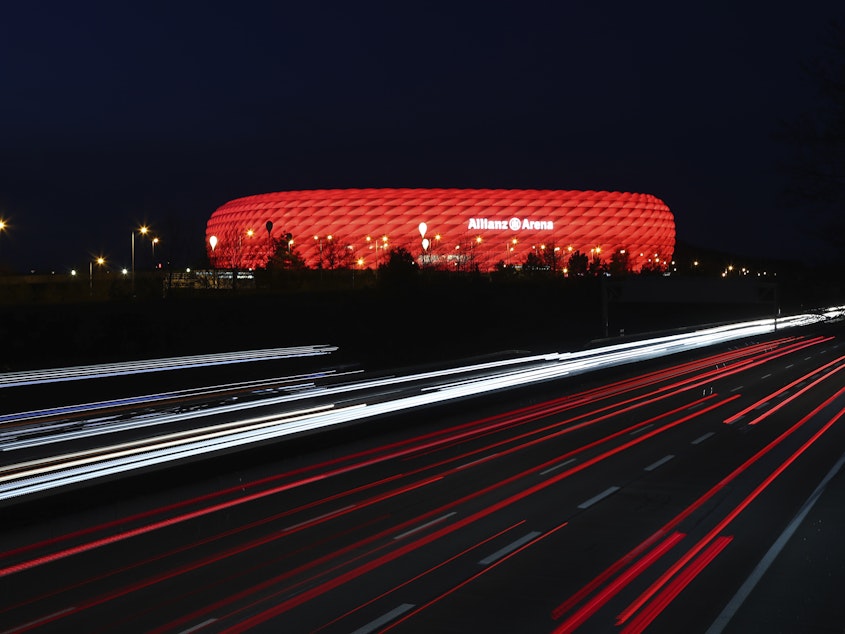German Stadiums Will Show Their Rainbow Colors To Support Hungary's LGBTQ Community

Soccer stadiums across Germany will light up with rainbow colors during a match Wednesday with Hungary, to protest a decision from the Union of European Football Associations denying Munich's request to illuminate its arena.
They're also showing solidarity with Hungary's LGBTQ community after the rival country passed a law denounced by human rights groups as homophobic.
The UEFA said Tuesday that it was denying a request for host city Munich's Allianz Arena to display the colors during the match.
"UEFA, through its statutes, is a politically and religiously neutral organisation. Given the political context of this specific request – a message aiming at a decision taken by the Hungarian national parliament – UEFA must decline this request," it said in a statement.
Instead, UEFA proposed alternative dates in the coming weeks in which the stadium could display the colors – just not during the match itself.
But the governing body's decision sparked a backlash. In response, clubs in Berlin, Frankfurt, Cologne, Wolfsburg and Augsburg said they would illuminate their stadiums anyway during Wednesday's match, according to Euro News.
Munich Mayor Dieter Reiter called out the UEFA, saying despite the decision, Munich would raise rainbow flags at city hall and light up a wind turbine near the stadium and the city's Olympic Tower with rainbow colors.
"I find it shameful that UEFA forbids us to set an example for diversity, tolerance, respect and solidarity," Reiter said in a statement, according to Eurosports. "I am also disappointed with the DFB [German Football Association], which, despite the overwhelming approval from all over the country, wasn't willing to position itself to influence the outcome," the mayor said.
Gary Lineker, a sportscaster and former professional soccer player from England, encouraged Munich to defy UEFA's order, tweeting: "Do it Munich. Do it. Light it up for the world to see."
The LGBTQ community has been increasingly marginalized by the right-wing government of Hungary's Prime Minister Viktor Orbán, Human Rights Watch says.
Critics say the new law, passed last Tuesday over objections from the opposition, conflates homosexuality and pedophilia. Among other things, it forbids promoting homosexuality or gender-change surgery to minors, but the language is so vague, LGBTQ advocates say, that even displaying a rainbow flag in public could be illegal.
RTL Klub, Hungary's largest private television station, said in a statement that films and series dealing with modern family life could be banned as a result of the new law, the BBC reports.
The law in Hungary, a European Union member, has been condemned by seventeen EU governments, including Germany, France, Spain and Ireland. European Commission President Ursula von der Leyen said in a statement Wednesday that she would "use all the powers of the Commission to ensure that the rights of all EU citizens are guaranteed. Whoever they are and where ever they live within the European Union."
On Monday, thousands of people demonstrated in Budapest's Kossuth Square in front of the parliament to protest the legislation, according to Deutsche Welle.
In a statement earlier this month, Amnesty International called the passage of the law "a dark day" for the rights of people in the LGBTQ community.
"It will expose people already facing a hostile environment to even greater discrimination," Amnesty said. [Copyright 2021 NPR]



